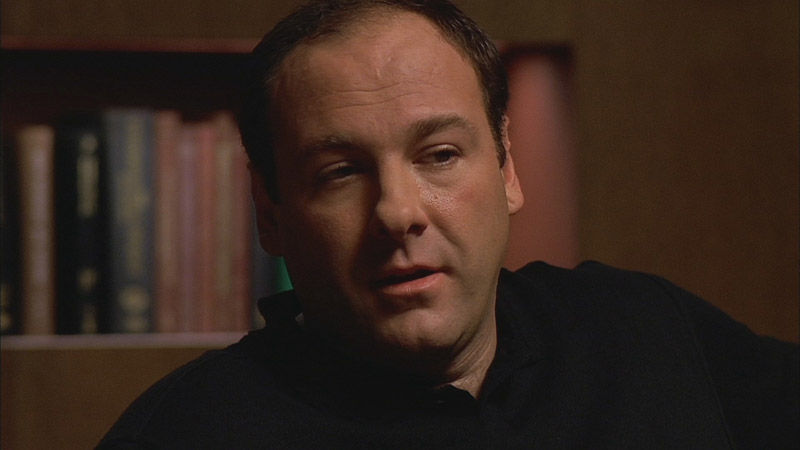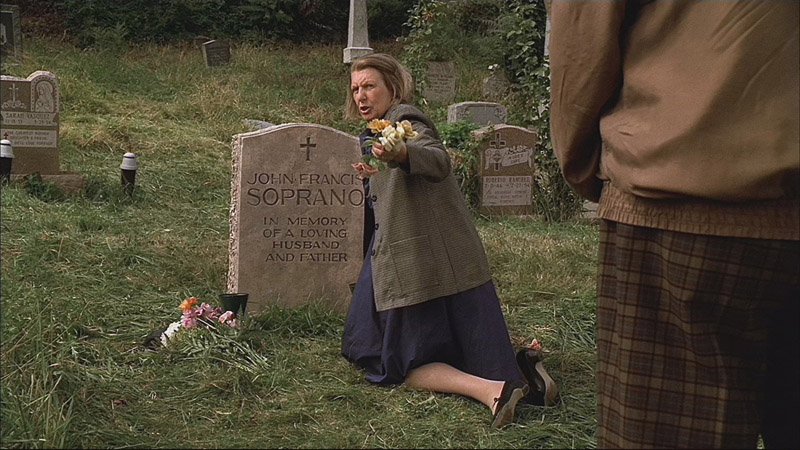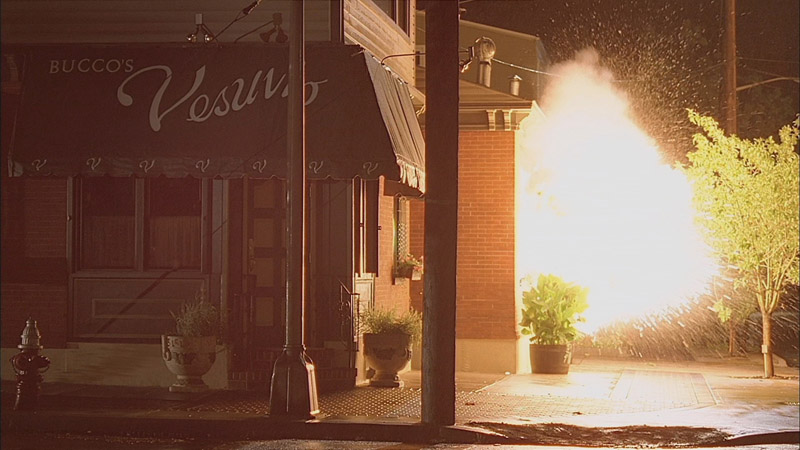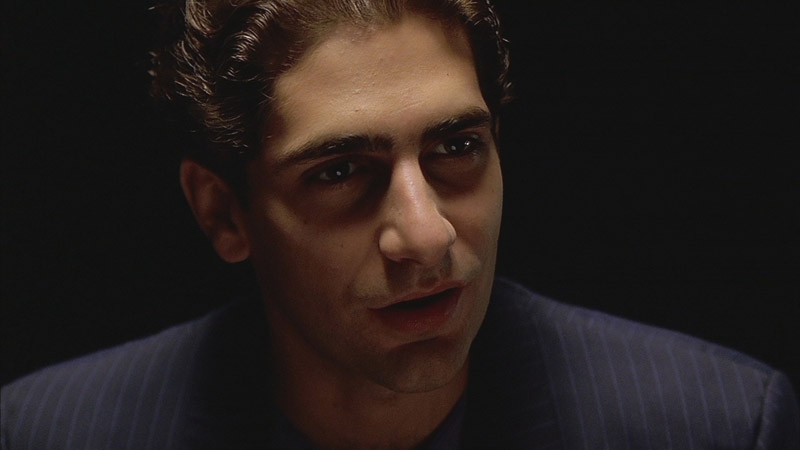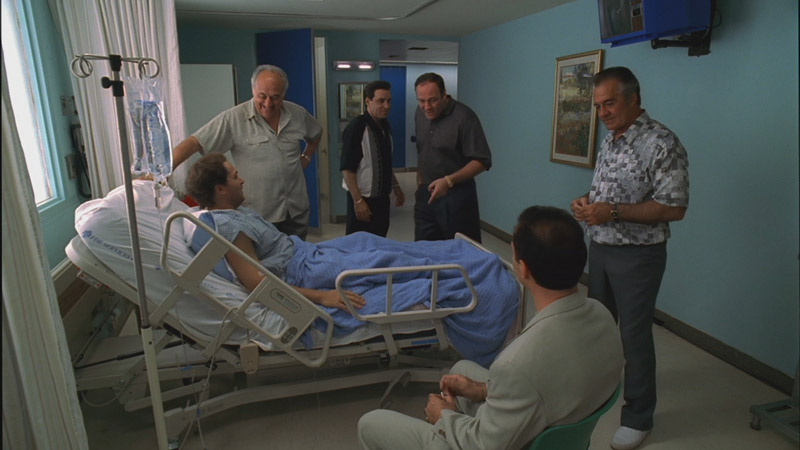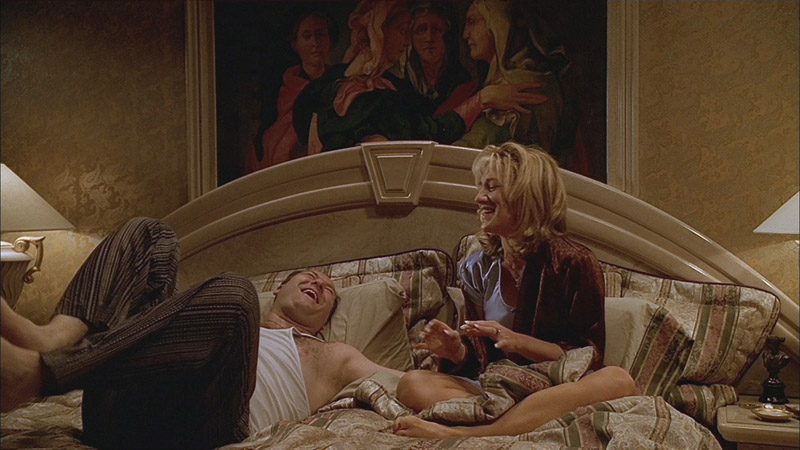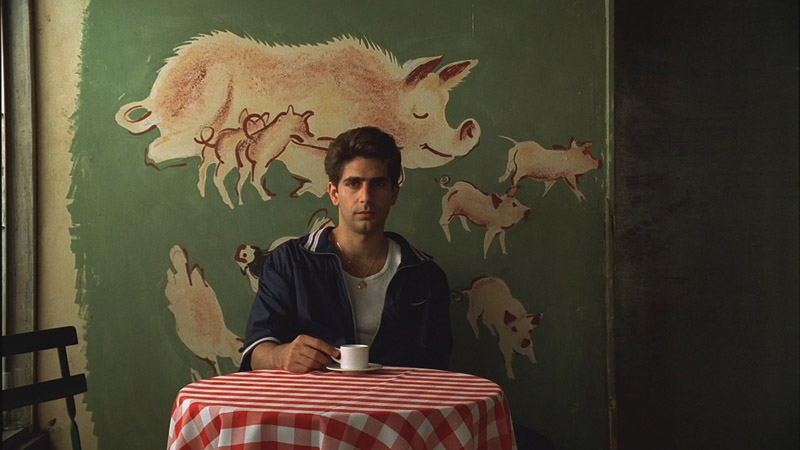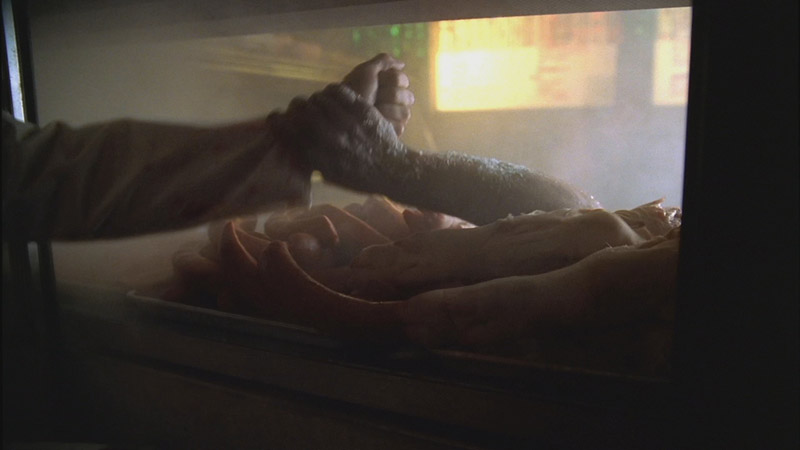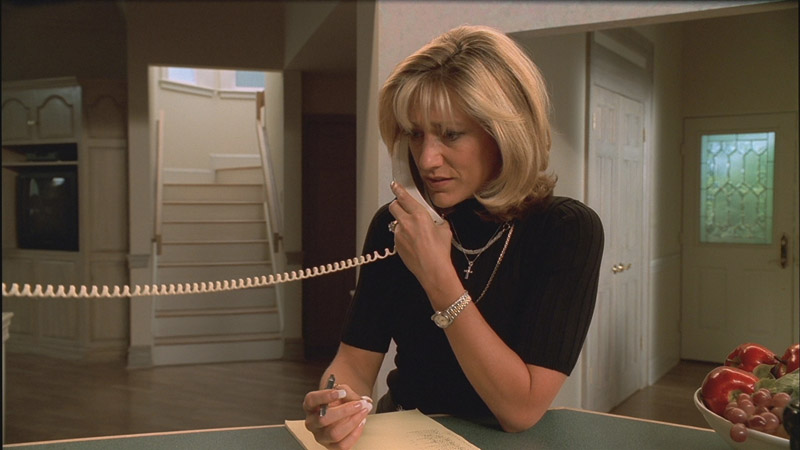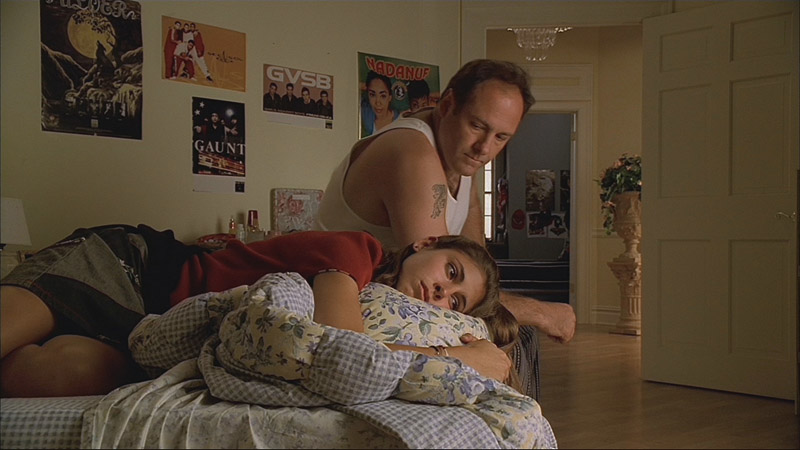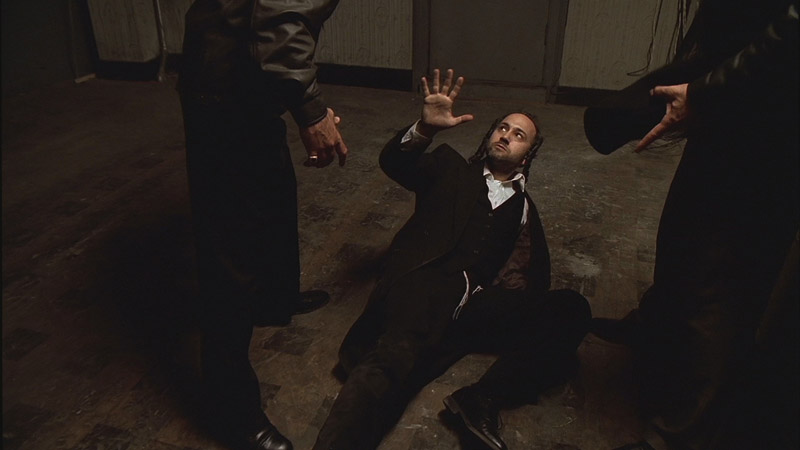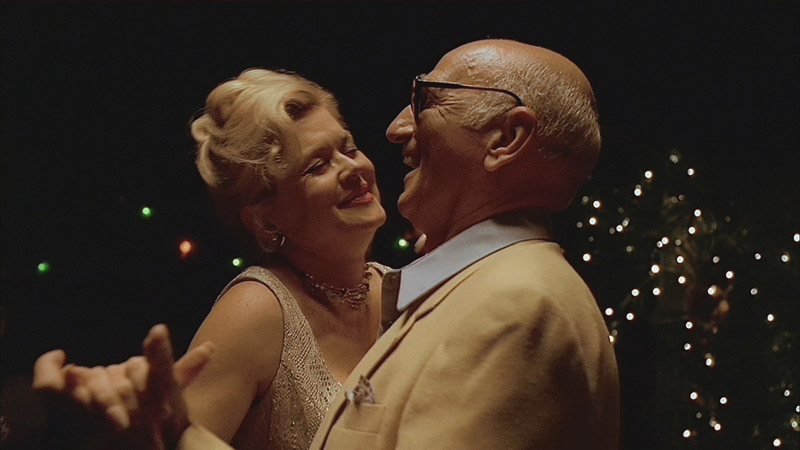Disc:
Region: FREE!
(as verified by the
Momitsu region FREE Blu-ray player)
Episode Runtime: 0:49:43.647
Disc One Size: 46,026,527,071 bytes
Sample Episode Size: 17,305,460,736 bytes
Video Bitrate: 31.78 Mbps
Chapters: 8
Case:
Gatefold w/ slipcase
Release date:
November 24th, 2009
Video:
Aspect ratio: 1.78:1
Resolution: 1080p / 23.976 fps
Video codec: MPEG-4 AVC Video
Audio:
DTS-HD Master Audio English 1928 kbps 5.1 / 48 kHz / 1928
kbps / 16-bit (DTS Core: 5.1 / 48 kHz / 1509 kbps / 16-bit)
DTS Audio English 512 kbps 2.0 / 48 kHz / 512 kbps / 16-bit
DTS Audio French 512 kbps 2.0 / 48 kHz / 512 kbps / 16-bit
DTS Audio German 512 kbps 2.0 / 48 kHz / 512 kbps / 16-bit
DTS Audio Spanish 512 kbps 2.0 / 48 kHz / 512 kbps / 16-bit
DTS Audio Spanish 512 kbps 2.0 / 48 kHz / 512 kbps / 16-bit
Subtitles:
English (SDH), English, Danish, Dutch, Finnish, French,
German, Norwegian, Portuguese, Spanish, Swedish, none
Extras:
• Audio Commentary with Creator & Executive Producer David
Chase and Peter Bogdanovich
• Interview with David Chase & Peter Bogdanovich – in SD
(1:17:34)
• Meet Tony Soprano – in SD (3:32)
• Family Life – in SD (4:11)
The Film:
As Babe Ruth was to Yankee Stadium, so Tony Soprano was to
Home Box Office, for surely it was the six-season
crime/family drama The Sopranos, capitalizing on HBO's
popular and critical success of their prison series, Oz,
that put HBO on the map and set the stage for what HBO is
today: the leader in original television series. The
Sopranos paved the way for other intelligent, non-frantic,
long-arced dramas that would eventually beget Deadwood and
The Wire, arguably the three best television drama series of
the past ten years.
The Sopranos hit the ground running with an idea that
brought together elements of The Godfather – namely the
business of running a crime syndicate in the context of a
family drama – and that staple of Western Civilization: the
psychiatrist's office. It is here that Tony comes to
confront aspects of his life – most importantly, loss of
control - that would have been impossible to work into a
story like The Godfather . True, Tony Soprano and Michael
Corleone both come face to face with loss of one sort or
another, but Michael, like James Kirk, always changes the
playing field to suit. Michael Corleone never accepts death
or loss – he simply works around it, making him that much
more vulnerable to jealous rages and paranoiac
rationalizations for murder – even of his own brother.
Tony has to face his share of loss and threats to his turf,
but thanks to David Chase's invention of the therapist we
get to see how Tony addresses them at all sorts of levels:
At one moment, he faints away in a panic attack, at another
he leaves the therapy hour before his time is up and later
sexualizes his relationship with his therapist to avoid
facing what bothers him. Outside the doctor's office, he has
to worry about how others in the family with designs on
power within the organization will view his going to a
psychiatrist. Will they fear their secrets will get out, and
will that knowledge comprise their ability to control and
extort? Does it mean that Tony is too weak to run the
organization; is he a ready target for a takeover? And
speaking of weakness, we haven't even begun to consider, nor
will we but scratch the surface of how his mother fits into
all this. There is a reason she is named Livia, that once
most potent and dangerous of powers behind the Julian
emperors – she meanders through this season like a wounded
bear, and Tony is just as vulnerable to her methods as
anyone else.
But Dr. Melfi serves another fascinating dramatic purpose.
The psychiatrist is our surrogate. Once she accepts Tony
Soprano as her patient, her life enters a new and uncertain
future. She no longer can assume the automatic protection of
disinterested voyeur she was accustomed to. Ethical
questions arise that make her relationship with her patient
difficult. And so it is with us. We are invited into a world
where vice and murder are part of doing business, where
children know and yet don't know what's going on, or who
their fathers really are. We warm to Tony and his people;
but we, like Dr. Melfi, will be made to feel uncomfortable
for our affection. There will be a price to pay to take an
interest in the lives of the Sopranos.
The Score Card
The Season : 10
Cast:
James Gandolfini: Tony Soprano
Edie Falco: Carmela Soprano
Lorraine Bracco: Dr. Jennifer Melfi
Nancy Marchand: Livia Soprano
Michael Imperioli: Christopher Moltisanti
Tony Sirico: Paulie "Walnuts" Gualtieri
Steve Van Zandt: Silvio Dante
Dominic Chianese: Junior Soprano
Jamie-Lynn Sigler: Meadow Soprano
Robert Iler: A.J. Soprano
Vincent Pastore: Salvatore "Big Pussy" Bonpensiero

Image:
9/9
NOTE:
The below
Blu-ray
captures were taken directly from the
Blu-ray
disc.
The first number indicates a relative level of excellence
compared to other Blu-ray video discs on a ten-point scale.
The second number places this image along the full range of
DVD and Blu-ray discs.
It's not like HBO's DVD from nearly ten years ago was
particularly troublesome. It was crisp - perhaps a little
too much so in the pilot episode - with good color and
contrast for the medium. Sharpness was inconsistent, but not
troubling. Altogether, very watchable. Once we enter the
world of high definition – that is, once we leave the title
sequence and get on with the featured episode – we are in a
different space altogether. What was once acceptable can now
easily be seen as just so many bits that happen to come
together to fool us into thinking we are watching people
moving about in various sets and natural locales.
The Blu-ray is like watching an Ektachrome slide show in
perfect continuous motion. Resolution is so good that we are
aware of no pixels, just substance. And there's a good
reason for this – besides the obvious one of higher
resolution: The Sopranos is very directly filmed, without
massive quantities of post-production filtering and
manipulation. We are just that much closer to the source
here than many of today's movies. The Sopranos has more in
common with a motion picture feature than a television
series, so it makes sense that it should look like film,
despite that it's undergone transition and compression with
a digital interface presented through a digital medium.
Grain is very tight, but image resolution is tighter;
impression is voyeuristic, which, I am certain is the
intention.
One last observation, as you can see from the comparative
caps, the DVD image is slightly narrower than 1.78:1 (I
measured it at 1.747:1), which has a thinning effect on
people and objects that would hardly be noticeable unless
placed side by side with the Blu-ray. Average bit rates from
the DVD came in at just under 5 Mbps (this for Disc 1, which
squeezes in a fourth episode) but the Blu-ray does not
exceed three episodes per disc, thus permitting very hefty
bit rates in the mid-30s for each 50 GB disc. Nice.
CLICK EACH
BLU-RAY
CAPTURE TO SEE ALL IMAGES IN FULL 1920X1080 RESOLUTION
DVD TOP vs. Blu-ray
BOTTOM
Audio & Music:
7/8
The Sopranos is a drama first and an effects vehicle last
and, as such, benefits from clear, sensibly sized and placed
dialogue. The DTS HD-MA mix permits a bit more clarity in
the dialogue, but also presents better ambience in just
about every location: when actors speak in a restaurant or
alongside a road they now seem part of the soundscape
instead of plastered on top of it. Background effects and
conversations outside the frame are faintly heard in the
restaurant. Distant traffic makes for a more believable
context in which action occurs. As for the occasional firing
of weapons, they now have an envelope that approximates the
expected change of timbre with each locale. Subtle and
effective. Don't expect much in the way of pans through the
surrounds, however. The Sopranos is not a series where cars
chase or gangs shoot it out at the local saloon.
One final note: Played through my system there is a
fascinating difference, I might even say: discrepancy,
between pop songs on the DVD and the Blu-ray. Most
noticeable is the title sequence music "Woke Up This
Morning" by the British band Alabama. On the DVD the bass is
rip and plumy – it's the thing that makes its mark on our
consciousness; but on the Blu-ray the bass is crisp and well
inside the mix. It's almost non-existent by comparison. At
first we miss it – a lot, and then we begin to notice how
much more of the music we can hear. This effect, perhaps not
as strongly, persists with other material throughout the
season.
Operations:
4
HBO's design for the box is old school: a sturdy gatefold
that permits individual access for each of its five discs.
Unfortunately, also old school - and I would have thought by
this time, discredited - it uses one of those flimsy outer
sleeves that opens only from the bottom. How smart is that,
I ask you? The chances of the entire gatefold operation
slipping right out the bottom as you lift the box off the
shelf is quite high, unless you remember to lift it with two
hands.
Perhaps most unexpected, considering the Blu-ray duplicates
the content of the DVD set from 2000, is that the 13
episodes and extra features are spread over 5 discs instead
of four. Usually it's the other way around. As for the menu
design, unlike the DVD, we are not directed to an
intermediate page with synopses fore and aft, instead we
have a "Play All" function right off the bat, which makes
for one or two fewer pages to load and to find your way
about. Good idea. On the other hand you can't access the
episode simply by clicking on its thumbnail, you have to
scroll down to the "Play" button. Bad idea.
Extras:
3
Let's call a Soprano a Soprano here – in other words, (I
really can't resist this) a plain pizza with cheese and a
little sauce. The Blu-ray uses the same near bare-bones
approach to extra features as the DVD set – the same
features, in fact. Back in its day, these would have been
enough to satisfy your average video collector, but we have
long since come to expect more. That was part of the draw
for Blu-ray to start with. So just to recap, first up is the
one and only audio commentary for the first (or pilot)
episode, which is more like an interview with David Chase
and Peter Bogdanovich that listlessly looks at filming
locations and other areas of production. On Disc five,
Bogdanovich reappears in an isolated interview of Mr. Chase,
now both in front of the camera. For about an hour and a
quarter Bogdanovich lobs easy pitches at Chase who seems
detached from the process. All the same I found it
interesting if I closed my eyes.
There are also two four-minute EPK promo pieces: the one
that focuses on the character of Tony Soprano and the other
is more of a behind the scenes segment with brief interviews
of cast and crew. All the extra features remain in 4:3
standard definition.

Bottom line:
8
So, if HBO's Blu-ray for the first season of The Sopranos is
the same as the DVD, only more so in the ways that high
definition has to offer in terms of picture and sound, does
it make sense to upgrade?
Nine years ago in 2000 when the DVD first came out, no one
was thinking maybe they should hold off for the high
definition set. It wasn't until the last 21-episode season
when HBO issued their first Blu-rays (initially on HD-DVD –
remember those!) and this in two parts of four discs each.
The price tag was high considering, but we were used to that
from HBO (You might recall that the DVD of Season One
retailed for a steep $100.) It's nice to have uncompressed
audio, which makes dialogue and ambience that much clearer,
but the real upgrade is the image, which makes watching The
Sopranos effortless and where we can fall into their lives
without concern for the mechanics of video.
Despite the lack of new features, the beautiful new video
transfer makes this a necessary upgrade for fans of the
series. The price is reasonable, and you can always
introduce your friends to the series by giving them your
DVD. Thumbs Up.
Leonard Norwitz
December 14th, 2009

|



Entire Series on Blu-ray:


|
![]()
![]()

![]()
![]()
![]()
![]()

![]()
![]()


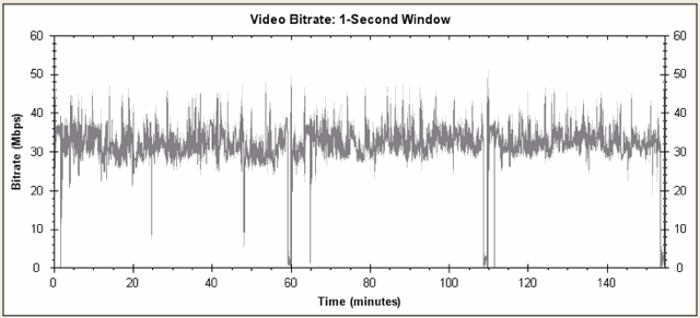
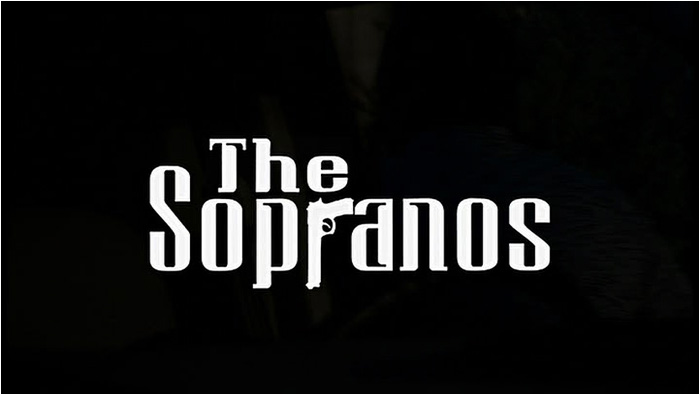

_sopranos_season_1_DVD.jpg)
_sopranos_season_1_blu-ray.jpg)
